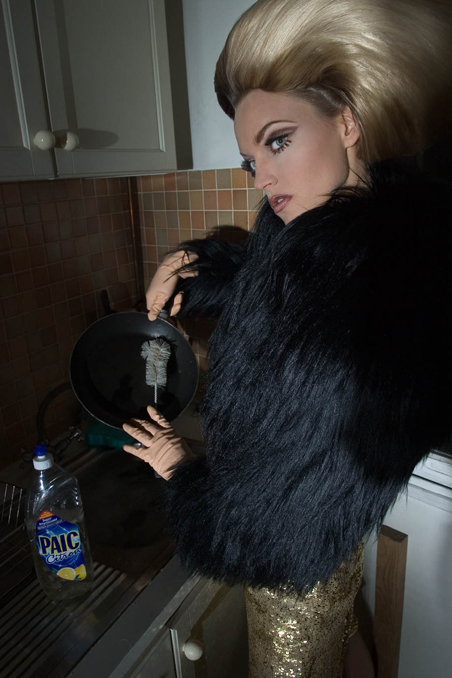As I have been asked this question on a number of occasions, I thought I could attempt to tackle it. As everyone that has broken in to this business has done so via several avenues, I will attempt to share some of the common means of doing so.
There have been many stories of how those who broke in to the industry did so. Most of those were photographers who assisted professionals and learned the vocabulary by doing so. The apprenticeship route is a good one, as you are immersed into the business from the get go. There are also several examples of those entering the business via other means. One of note are models who wish to plan for their future and due to their being present during shoots (obviously) and if they are observant, can build a vast vocabulary based on those experiences. Hair and Make-Up artists have also broken in to the business and they have a very privileged relationship with the magazines and generally work with a vast range of different sorts and as a result have a lot more doors available to them. One example is “Tyen” who started as a Make-Up artist and eventually going on to become one of the most famous Fashion-Beauty photographers in the world. Another example of inner circle migration is the Fashion Stylist who has access to many magazines, especially if they are free lance. They know all of the Fashion and Beauty Editors and therefore are in a perfect position to solicit them.
However, in all cases the photographer must put a book together. When I say a book (portfolio) together, I mean a book that replicates the look of Fashion-Beauty or Still Life spreads. That is at least 6-8 fashion stories of anywhere from 6-12 pages each. Now this could be a mix of double and single page spreads and at least 2-4 Beauty stories of around 4-8 pages each. When putting these stories together I highly recommend you read some of my articles about the Fashion Biz. I don’t wish to repeat here what was said in those articles.
When putting your book together, just remember the golden rule of the importance of the team and that is what was adamantly expressed in the articles I have written in this blog.
Once you have put together your book from the tests you have done, mostly put together using the exchange system of images for services, I.e you give models, stylists, hair and make-up artists images for their services, you will be ready to hit the road running. I suggest you commence by contacting all of the hard copy and internet magazines in your region as well as those that accept submissions. Send them samples of your work that you have done and ask if they would be interested in doing a story (editorial) with you. Tell them you have access to teams for your productions and would be willing to co-ordinate the shoots for them. This is important if your client is in Hong Kong and you are in Chicago for example. If they prefer having you do a submission, ask them how much they pay for stories that they accept. If you agree with the payment, ask them to send you their “Themes” schedule to know what are the directions of their future publications, so that you can plan the right theme that corresponds with the themes of the issues they will be publishing. Put your team together based on who would be best to serve the story that you will be shooting. Produce the story, do the Post Prod, send it to them and cross your fingers. If they publish, you will get paid in 60 days after the date of publication.
You will also want to call all of the Ad Agencies, Press Agents of Designers of Clothing, Foot-ware, Beauty Products and anything that uses models for their productions. You may also go directly to the manufacturer if they don’t have an agent representing their line. Your daily rate is based on supply and demand, your notoriety and what they are willing to pay for a production. If images are being used in multi media, print, posters etc. Ask about royalties. They may wish to do what is called a buyout, i.e. pay one set fee for “X” usage over “X” period of time. Depending on locality, these figures swing dramatically.
This although a short primer will lead you in the right direction. How you get in to it has more to do with your knowledge of the business, research, luck and your own personal circumstances. However, always be diplomatic and attempt to put the shoe on the other foot when appropriate. But always go for as much as you can, as once you have set the precedent, it is always more difficult to go up than go down.
Finally…”Good Luck!”


